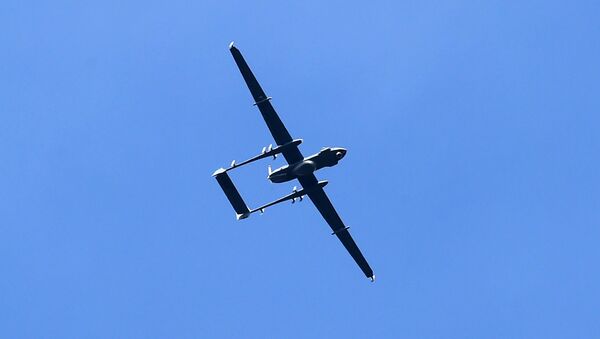New Delhi (Sputnik) — With India set to soon begin operating drones for civilian purposes, the country's top bureaucrat has asked manufacturers to gear up for huge demand that could reach more than $50 billion in the next 15 years. Amitabh Kant, CEO of NITI Aayog, the official think tank of the government of India, has claimed that Unmanned Aircraft Systems (UAS) have the potential to transform many sectors and modernize India rapidly.
READ MORE: India Successfully Tests Indigenous Engine Meant to Power UAVs in the Himalayas
Reiterating that drones are going to replace 80% of the operations presently carried out by the manned aircrafts Kant said that integrating drones in civilian space is a challenging job, and therefore, requires an appropriate regulatory framework.
— Dhanraj Nathwani (@DhanrajNathwani) July 13, 2018
"Indian market for UAS will be $50 billion over the next 15 years. India must realize the full potential of this technology and leverage it as a powerful tool not only for the security and safety, good governance, increased productivity, but also to encourage consumer in commercial applications to develop a sophisticated UAS industry sector and make a new India by 2022," Kant, one of the most powerful bureaucrats of the Narendra Modi government, said during a conference of industries in New Delhi.
"We need regulations for usage of drones in terms of altitude, endurance, and categorization. UAS industry is at the cusp now," Anil Aggarwal, joint secretary, Department of Industrial Policy Promotion (DIPP), said.
READ MORE: India Tests Domestic Drones Modeled After General Atomic’s Predator
"We must have the capabilities of designing and manufacturing in India so that the IP stays with us," Aggarwal added.
Currently, non-government agencies, organizations and individuals are not allowed to launch UAS for civil purposes. Industries have been demanding more relaxations in the proposed drone policy, which restricts the use of fully autonomous drones, which is the major requirement for high precision tasks in agriculture and in factories. The draft policy also prohibits the use of drones at night and beyond the visual line of sight.



